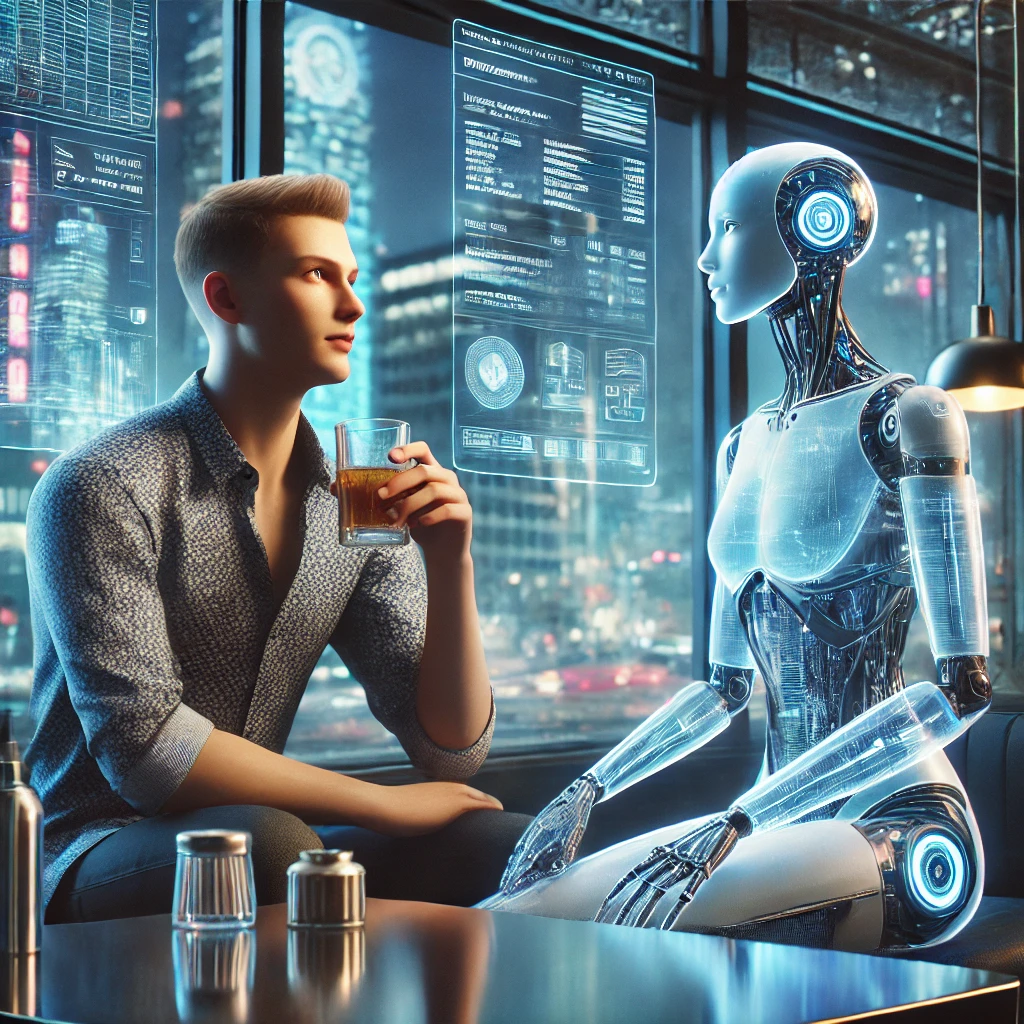Like a pressure drop on a barometer or a sudden gust of wind foreshadowing a storm, the signs are here – a shift in the cultural climate is coming. A lifetime spent observing technology revolutions has primed me to recognize these signs clearly.
I’ve witnessed the analog technologies of my childhood replaced by efficient digital advancements. I grew up alongside the rise of the internet, cautiously watching its promise of distributed, free access to information erode with the dominance of social media. Having worked extensively within big tech and Ad Tech, I’ve actively contributed to the digital revolution. These experiences convince me that AI is the next significant evolution, and its adoption will profoundly reshape our world.
Many intelligent minds are investing their time in building AI. Many profit-driven individuals are strategizing ways to monetize it. I created Better With Robots to document and predict AI’s impact on society.
AI has already significantly impacted me personally. Better With Robots will provide practical tips, prompt advice, and real-world examples of how individuals are leveraging AI today. Personally, I’ve used AI to write and improve my SQL coding skills. AI helped me quickly learn conversational Spanish ahead of a recent trip to Mexico. It even played a major role in planning my trip, designing a customized itinerary full of exploration, excellent food, and essential relaxation time. Yet perhaps AI’s greatest immediate impact has been helping me organize and refine my ideas.
At its core, AI excels at organizing information, particularly web-based content. AI’s primary value proposition is its ability to conduct extensive research nearly instantaneously, distilling vast amounts of information into easily accessible formats. On a broader scale, AI functions as unprecedented compression software. The expansive pool of human knowledge – historically compressed through language and writing – is now fully digitized, with AI serving as the key to unlocking it.
Historically, making vast amounts of information accessible has driven the growth and wealth of internet monopolies. Organizing the world’s knowledge was the original vision behind the internet’s first monopoly: Google. Before Google, online content was curated manually, with human-curated directories categorizing websites. This human-curated approach quickly became unsustainable as internet content grew exponentially.
Google introduced the first generation of algorithms, dynamically ranking content relevance and organizing the previously chaotic internet into an indexed, searchable system. I began my career at Google, and I’ll share in-depth how Google reshaped the internet in a future Better With Robots article. For now, suffice it to say Google transitioned content curation away from humans and built a vast fortune selling ads driven by their algorithm.
Social media then marked the demise of the distributed internet. Platforms like Meta’s Facebook created a second generation of algorithms, transforming how users consumed online content. Unlike Google, which indexed a distributed network of websites, social media centralized content production and distribution, using personalized user interaction data to deliver highly targeted content and advertisements.
Future articles will explore the deep societal impacts of this algorithmic personalization, but it’s important to briefly highlight how this shift consolidated content onto fewer and ever more powerful platforms. Social media’s centralized distribution and increased advertising share built the internet’s second major algorithm-driven fortune.
This brief internet history reveals a clear truth: substantial profit comes from centralizing and controlling content distribution through increasingly personalized algorithms. Now, an arms race between existing internet monopolies and well-funded startups – including those subsidized by the Chinese government – signals the rise of a third-generation algorithm: AI. The stakes are enormous. Winners of this AI race will dominate content distribution monetization.
For developed nations, the most immediate and profound social change from the AI revolution will result from this continued centralization of content and information distribution. Centralized control allows distributors immense power to dictate content visibility and monetization, determining which content creators thrive and which languish. It’s why I’ve chosen to host Better With Robots on Substack instead of a personal blog – to better withstand the increasing centralization of content distribution.
While I do miss the open internet days, when individuals could prosper independently, it’s clear that AI will further centralize content distribution, funneling even more advertising revenue into the hands of companies that control AI platforms. However, my intention isn’t to pass moral judgment on AI. Technology itself isn’t inherently moral or immoral. The outcomes depend entirely on those who create and use it and their individual ethics.
Social change is historically disruptive and rarely clear-cut. Every significant societal shift brings both costs and benefits; the AI revolution will be no different. My goal with Better With Robots is to foster a thoughtful conversation about how AI could evolve – and consequently, how it could evolve us – as informed by my deep experience in big tech.
AI’s power in compressing and disseminating ideas is historically rooted in the increasingly personalized algorithmic trajectory of the internet, but its impact will ripple across numerous industries. The internet doesn’t exist in isolation; its knowledge interacts continuously with billions of human minds. AI will drive transformative changes across human culture.
Better With Robots will dive deep into both short- and long-term implications of the AI revolution, exploring transformative effects in education, medicine, and human-AI interactions at scale. We promise to deliver thought-provoking insights, grounded in real-world experience, helping you understand today’s AI uses, anticipate future developments, and grasp long-term evolutionary possibilities.
Subscribe to Better With Robots for fresh, thought-provoking insights into the AI revolution and its real-world impacts. We use Substack to manage our newsletter. Our free plan keeps you up-to-date and you have the option of showing further support for our writing by choosing a paid subscription.

